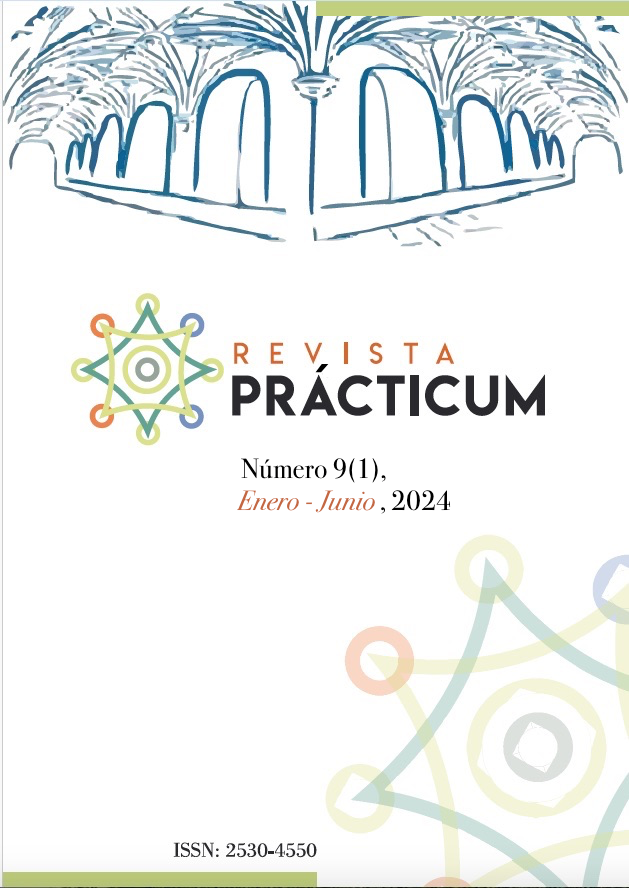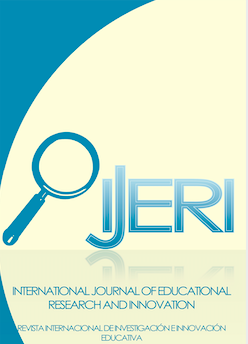Educational Approaches in Teacher Training regarding pedagogical assessment
DOI:
https://doi.org/10.24310/rep.9.1.2024.17851Keywords:
Teacher training, practices in teaching, evaluation, higher education, educational strategiesAbstract
The relevance of a -pre-professional exercise based on the intertwining of knowledge and skills goes beyond what has been taught in the classroom and raises major challenges for teacher training and professional development methods in an internship context. In this context, research data arising from the application of a questionnaire survey to future teachers on pedagogical assessment will be presented – one of the axes of professional development identified by interns, supervisors, and the supervisory team – whose opportunity allowed for reflection/ action in the development of supervised teaching practice in teacher training master’s courses. The main results show that most students have already used assessment methodologies that allow assessing understanding, an important skill for the 21st century and the current context, although they use less those that allow reflection.
Downloads
Metrics
References
Alnahdi, G.H. & Schwab, S. (2021) Special education major or atti- tudes to predict teachers' self-efficacy for teaching in inclusive education. Frontiers in Psychology, 12, 680909. Available from: https://doi.org/10.3389/fpsyg.2021.680909
Alves, J.M. & Cabral, I. (2017). Uma nova gramática escolar em ação—Ensaio compreensivo das possibilidades. Uma Outra Escola é Possível: Mudar as Regras da Gramática Escolar e os Modos de Trabalho Pedagógico; Faculdade de Educação e Psicologia da Universidade Católica Portuguesa. pp. 5–9.
Alves, J. M. (2023). Inovação pedagógica: um mundo de interpelações. 79-79. Resumo de V Seminário Internacional Educação, Territórios e Desenvolvimento Humano, Porto, Portugal. http://hdl.handle.net/10400.14/41901
Assemany, D. & Gonçalves, D. (2021). Pedagogia de Aprendizagem Ativa: referenciais resultantes da formação de professores. In F. J. Garrigós-Simón, S. Estellés Miguel, J. O. Montesa Andrés, Y. Narangajavana, International Conference on Innovation, Documentation and Education (INNODOCT) (pp. 823-830). Valência: Universidade. http://ocs.editorial.upv.es/index.php/INNODOCT/INN2021/paper/viewFile/14026/6534. - ISBN 978-84-9048-365-7
Azevedo, J. & Jesus, P. (2020). Inovação Educacional. O que é? Porquê? Onde? Como? Revista Portuguesa de Investigação Educacional, 20, 21-55. https://revistas.ucp.pt/index.php/investigacaoeducacional/article/view/9683
Bacich, L. & Moran, J. (2018). Metodologias Ativas para uma Educação Inovadora: Uma Abordagem Teórico-Prática. Penso Editora.
Lopes, J. & Santos-Silva, H. (2012). 50 Técnicas de Avaliação Formativa. Lidel.
Lopes, J. & Silva, H. S. (2009). A aprendizagem cooperativa na sala de aula: um guia prático para o professor. Lidel.
Lopes, A. D. F. M. (2009). Um tempo de renovada aprendizagem. Coimbra.
Fernandes, D. (2021). Avaliação pedagógica, Classificação e notas: Perspetivas Contemporâneas. ISCTE – Instituto Universitário de Lisboa. Escola de Sociologia e Políticas Públicas.
Fernandes, D. (2020). Para uma Fundamentação e Melhoria das Práticas de Avaliação Pedagógica. ISCTE – Instituto Universitário de Lisboa. Escola de Sociologia e Políticas Públicas.
Fernandes, D. (2022). Avaliar e Aprender numa Cultura de Inovação Pedagógica. LeYa Educação.
Flores, M. A. (Org.) (2014). Profissionalismo e Liderança. De Facto Editores.
Gonçalves, D., Nogueira, I.C., Quinta e Costa, M., Monteiro, I., Silva, C.V. & Gonçalves, J.L.(Coords.); Gonçalves, C., Oliveira, C., Silva, C., Pimenta, E., Neves, F., Martins, F., Oliveira, F., Sousa, J., Rocha, J.F., Cunha, M. A., Amorim, M.F. & Tavares, M. (2022). Inovação e (Trans)Formação Educacional. ESEPF.
Gonçalves, D. & Nogueira, I.C. (2019). Eixos estruturantes do desenvolvimento profissional docente. In N. Fraga (Org.),CIEC 2018 - II Conferência Internacional de Educação Comparada (pp.525-536). CIE-UMa.
Kirsop-Taylor, N. A., & Hejnowicz, A. P. (2022). Designing public agencies for 21st century water–energy–food nexus complexity: The case of Natural Resources Wales. Public Policy and Administration, 37(4), 410-430. https://doi.org/10.1177/0952076720921444
Marques, H. & Gonçalves, D. (2021). Do conceito de inovação pedagógica. Vivências Educacionais, 7(1), 36-45.
Martins, G., Gomes, C., Brocardo, J., Pedroso, J., Carrillo, J., Silva, L., Encarnação, M., Horta. M., Calçada, M., Nery, R. & Rodrigues, S. (2017). Perfil dos alunos à saída da escolaridade obrigatória. Ministério da Educação - DGE.
Martins, E. C. (2021). A Pedagogia do Encontro como uma pedagogia de baixa densidade: contextos (socio) educativos e relacionais. Revista Lusófona de Educação, 52, 31-45.
Miranda, H., Seabra, F., & Abelha, M. (2022). Centros escolares, supervisão pedagógica e colaborativa: perspetivas de educadores de infância e professores do primeiro ciclo. Indagatio Didactica, 14(1), 165-186. https://doi.org/10.34624/id.v14i1.29638
Nóvoa, A. & Alvim, Y. (2020). Nothing is new, but everything has changed: A viewpoint on the future school. Prospects (2020) 49:35–41 https://doi.org/10.1007/s11125-020-09487-w
Pinto, S., Rocha, F., & Gonçalves, D. (2024). Inovações Pedagógicas: das percepções às Práticas Profissionais. DEDiCA Revista De Educação E Humanidades (dreh), (22), 45–58. https://doi.org/10.30827/dreh.22.2024.29189
Rodrigues, D. (2012). Educação Inclusiva. Dos conceitos às práticas de formação. Instituto Piaget.
Rodrigues, J. P., Gonçalves, J. L., Garcia, V. A. & Gonçalves, D. (2019). Educação integral, institucionalização do tempo livre: outras lógicas educacionais no contexto luso-brasileiro. Cadernos CEDES, 39(108), 145-160. https://dx.doi.org/10.1590/cc0101-32622019225885
Roldão, M. do C. (2008). Função docente : natureza e construção do conhecimento profissional. Saber (e) Educar. ESE de Paula Frassinetti. nº 13 (2008). pp. 171-184.
Santos, R. F. (2012). Tendências Pedagógicas: O Que São e Para Que Servem. Biblioteca da educação.
Slavin, R. E. (1995). Cooperative learning: theory, reserch, and practice. Allyn and Bacon.
UNESCO (2022). Reimaginar nossos futuros juntos: um novo contrato social para a educação. Comissão Internacional sobre os Futuros da Educação. https://unesdoc.unesco.org/ark:/48223/pf0000381115
Vitón de Antonio, M. J. & Gonçalves, D. (2022). Desafíos societales y compromisos coeducativos: aprendizajes situados y retos pedagógicos transformadores. In Org. P. A. Cavalcanti, Educação: teorias, métodos e perspectivas (vol. VI, cap. 6, pp.53-65). Artemis. https://sistema.editoraartemis.com.br/index.php/admin/api/ebookPDF/2879
Zabalza, M. A. (2012). Articulación y rediseño curricular: el eterno desafio institucional. REDU, Revista de Docencia Universitaria, 10(3), 17-48. https://doi.org/10.4995/redu.2012.6013
Downloads
Published
How to Cite
Issue
Section
License
Copyright (c) 2024 Daniela Gonçalves, Margarida Quinta e Costa (Autor/a)

This work is licensed under a Creative Commons Attribution-NonCommercial-ShareAlike 4.0 International License.
Acceptance of the work implies that the author grants Revista Prácticum the exclusive rights to reproduce, distribute and sell his or her work worldwide, both in digital and paper formats, CD-ROM, etc.
Likewise, the authors shall grant Revista Prácticum the rights of dissemination, public communication on the Internet and IT networks, data buses, as well as any other portals or electronic devices for online consultation of its contents and extracts, under the conditions of the portal, repositories or databases where the work is stored.
Revista Prácticum allows authors to publish and disseminate their articles and works on their personal websites, research teams, institutional repositories and scientific databases. All this in accordance with the Creative Commons 4.0 License









8.png)








